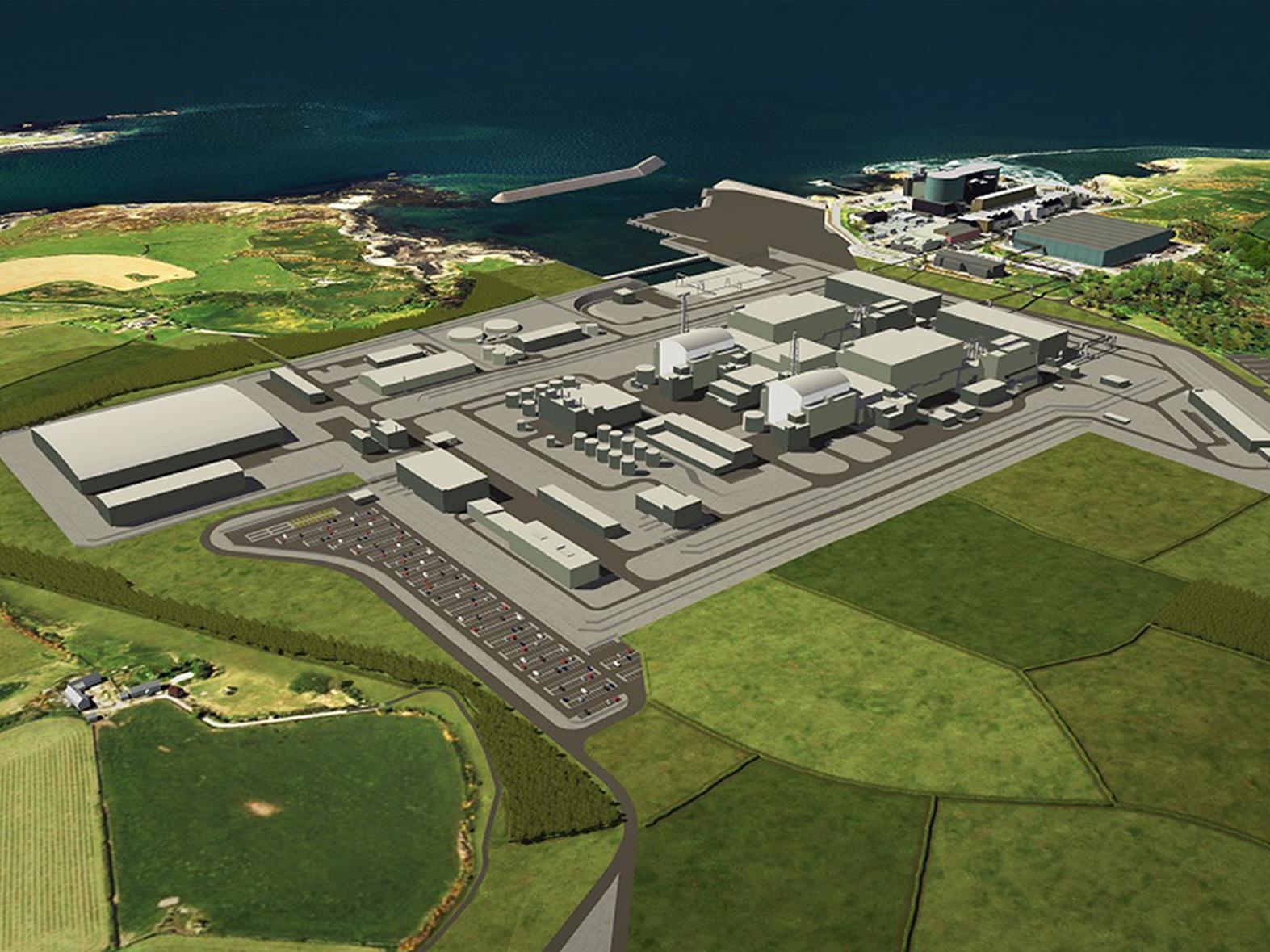Government admits nuclear is far too expensive, but will renewables plug the gap?
Analysis: With more nuclear disappointment for the UK, green power is making more sense than ever before, says Josh Gabbatiss


Hitachi has become the second Japanese company in just a few months to pour cold water on the UK’s dreams of a nuclear future.
In backing out of a £16bn development in Wales, it has threatened hundreds of jobs and a considerable chunk of the nation’s clean energy supply for the coming decades. This is despite a “significant and generous” offer made by the government to the firm in a bid to save the deal.
So what went wrong? Business secretary Greg Clark’s address to the House of Commons in the aftermath gave us a clue.
“The cost of renewable technologies such as offshore wind has fallen dramatically, to the point where they now require very little public subsidy and will soon require none,” he said.
This was seen by many proponents of renewables, including environmental NGOs like Greenpeace who have long opposed nuclear energy, as an admission that ministers have finally seen the light. As the cost of renewables plummets, Mr Clark noted. factors like tighter safety regulations have caused nuclear power prices to soar, meaning attracting private investment is tricky.
The only nuclear construction project currently underway in the UK, Hinkley power plant in Cumbria, is way behind schedule and billions over budget. There is also the unresolved – and costly – problem of what we intend to do with our radioactive waste. Proposals to bury it underneath national parks have predictably not gone down well.
Green groups say ministers cannot justify the enormous cost of this “outdated technology” when renewable energy sources are waiting in the wings to take over, and to some extent – after years of nuclear disappointment – the government seems to agree.
The collapse of Hitachi’s Wylfa nuclear plant plans, as well as a second proposed development in Gloucestershire, comes shortly after Toshiba scrapped its Moorside plant in Cumbria. The slow or non-existent development of nuclear capacity has been accompanied by a quiet lowering of expectations, with the government cutting back on the amount of future power it envisages coming from nuclear.
This has been accompanied by raised expectations for renewables, which are now pegged to provide up to 60 per cent of the country’s electricity by 2030.
But the government is still adamant the UK needs to build more nuclear capacity. Mr Clark went on to confirm in no uncertain terms that Britain will continue to finance new projects that are “fair to electricity bill payers and to taxpayers”, and insisted that even the Hitachi deal could be revived.
A lot of people agree. Nuclear is a low-carbon energy source that supplies nearly a fifth of the UK’s electricity, and most energy experts – including the government’s own climate advisers – say it will continue to power the country and help cut carbon emissions for some time. Otherwise, there is a chance we will be forced to rely on carbon-emitting gas to supply electricity.
After all, they say, if we rely too much on renewables, what will happen when the sun isn’t shining and the wind isn’t blowing?
Ultimately, the answer to this question will lie in energy storage – giant batteries that can be charged and then keep the systems running consistently. The cost of this technology is falling, but it will require major investment to provide the electricity we need. Constructing interconnectors to share electricity between countries is another way of ensuring a constant supply, and a major link to Belgium is expected to begin operating this year. Even then, the country will need to build an awful lot of wind turbines.
Whether or not the UK can survive with no new nuclear – and it’s worth noting that both major parties support it – it’s clear that merely wanting it is not enough to make it a reality. With a gaping hole in the UK’s power mix to fill, the government needs to come up with a plan B, and fast.
Join our commenting forum
Join thought-provoking conversations, follow other Independent readers and see their replies
13Comments